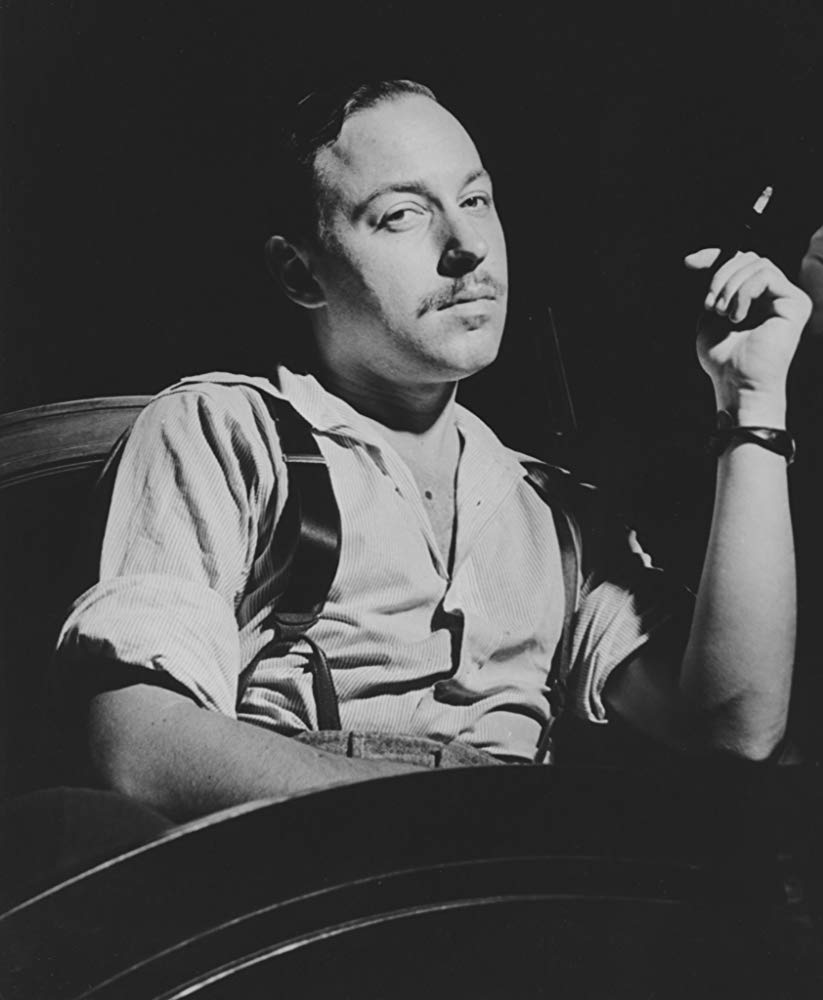

Baby Doll (Elia Kazan, 1956) wr. Tennessee Williams
Cat on a Hot Tin Roof (Richard Brooks, 1958) play Tennessee Williams, screenplay Brooks, James Poe
Roman Spring of Mrs Stone, The (Jose Quintero, 1961) novel Tennessee Williams, screenplay Gavin Lambert; Roman Spring of Mrs Stone, The (Robert Allan Ackerman, 2002) novel Tennessee Williams, screenplay Martin Sherman
Streetcar Named Desire, A (Elia Kazan, 1951) play/screenplay Tennessee Williams, adaptation Oscar Saul
Suddenly Last Summer (Joseph L. Mankiewicz, 1959) play/screenplay Tennessee Williams/Gore Vidal
Sweet Bird of Youth (Richard Brooks, 1962) play Tennessee Williams, screenplay Brooks
Tom Williams was interested in transgression, perversion, excess, and some of his work is still disturbing. In the world in which we live now, in which the gaps between rich and poor and have and have-not continue to grow, and in which millions of people go hungry daily, there are not many days that pass that I do not think of the revelations of Suddenly Last Summer - and I'm referring to only one of shocking things that occur in that play/film.
So there's the cannibalism. That's bad enough. Also, Sebastian prostitutes his sister in order to make contact with men with whom to have homosexual contact. Not only that, but also Catharine's mother procures for her a lobotomy so that she won't be able reliably to continue to report what has been done to her. ... It's your choice which of those three is ethically worst. Hollywood's verdict seems to have been that homosexuality is worse than homophagy, as it left the former out of the story in the released film.
Any account of the films based on Williams's narratives should mention what was left out.
In the case of Sweet Bird of Youth, it's castration. The play ends with Chance about to undergo that. In the film, he is hit on the face by Joe Jnr with a cane, supposedly rendering him forever unattractive. Heavenly, his beloved, is not at all put off by this (of course). She has the last speech, telling Joe Snr (Ed Begley) that she will never re-enter his house, and drives off with Chance. It's all wrapped up in a few unconvincing seconds. That is, I assume, Richard Brooks's coming to terms with working in a Hollywood still dominated by the Hays Code, in which there are things which may not be discussed.
In Cat on a Hot Tin Roof, another Brooks film, it's homosexuality. At the end of the film, Brick shuts the door and explicitly heads for the featured bed with Maggie, to consummate his legitimate heterosexual desire for her. The episode Brick recounts in the middle of the film to Big Daddy - his Brokeback Mountain moment with Skipper, his real love - is discounted, as he reaffirms his conventional sexuality.
In A Streetcar Named Desire, it's heterosexuality. Blanche has 'always depended on the kindness of strangers'. Take that to mean whatever you like. It's her last line, so you should not miss its significance. But she can't depend on her brother-in-law Stanley, who rapes her while his wife is giving birth. And then there was Blanche's husband: whatever happened to him? Welcome to Williams World!
Garry Gillard | reviews | New: 13 September, 2018 | Now: 1 August, 2019